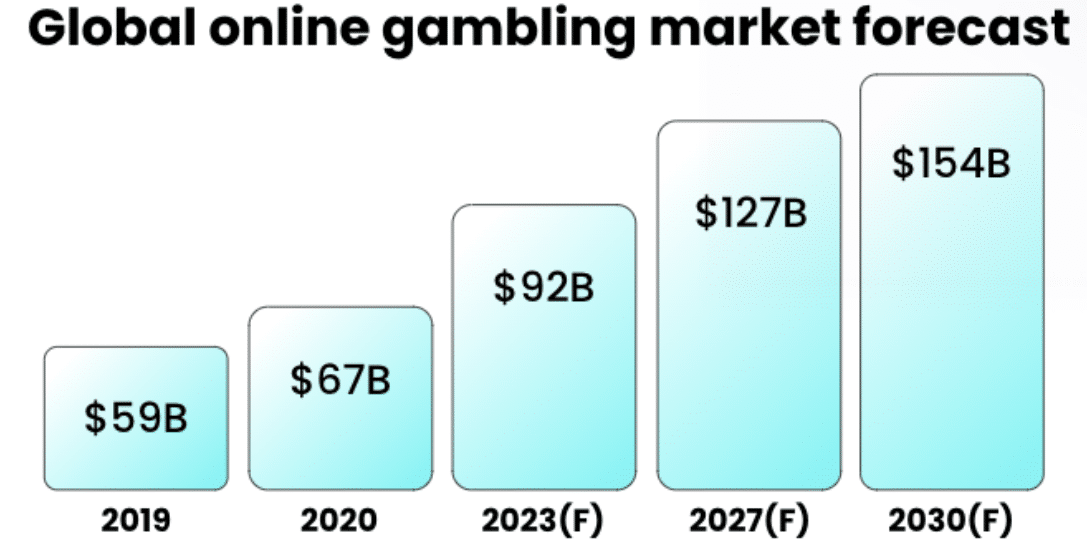The rise of cryptos, particularly Bitcoin, has brought a financial revolution that extends beyond traditional financial systems. One of the notable facets of this revolution is the significant role that digital assets play in online gambling. According to BitcoinCasinos.com, almost 50% of Bitcoin transactions can be linked to gambling activities.
The site’s financial analyst, Edith Reads, commented on the data, “Bitcoin’s prominence in the world of digital finance has undeniably been influenced by its association with various use cases, and it comes as no surprise that a significant portion of its transactions is linked to gambling activities. This highlights the cryptocurrency’s versatility and underscores the need for continued scrutiny and regulation to ensure its responsible and sustainable integration into the broader financial ecosystem.”
The Growing Nexus Between Bitcoin and Gambling
BTC’s journey from obscurity to mainstream acceptance has been remarkable. Initially viewed as a niche digital currency, it has gradually evolved into a legitimate investment asset. It is also an accepted form of payment for various goods and services. However, one industry where Bitcoin has made a particularly significant impact is online gambling.
There are several reasons why Bitcoin has become the currency of choice for gamblers:
Anonymity and Privacy: Bitcoin transactions are pseudonymous. This means users can gamble without revealing their personal information. This appeals to individuals who prioritize privacy and want to keep their gambling activities discreet.
Quick Transactions: Traditional payment methods, such as credit cards and bank transfers, can involve delays. BTC transactions are swift, enabling gamblers to start playing almost instantly.
Accessibility: BTC is a global currency, and anyone with an internet connection can access it. This makes it particularly appealing to individuals in countries where online gambling is restricted.
Lower Transaction Costs: Traditional payment methods often incur fees, but Bitcoin transactions typically involve lower costs. This makes it an attractive option for both gamblers and online casinos.
Security: Blockchain technology, which underpins BTC, offers enhanced security. Transactions are recorded on a public ledger, reducing the risk of fraud and manipulation.
The Impact on Bitcoin’s Image
While the increasing integration of BTC into the gambling industry has its benefits, it also raises concerns about its public image.
Bitcoin’s association with gambling can lead to perceptions of it being a speculative asset rather than a legitimate form of currency or store of value. This can hinder its broader adoption for everyday transactions and investments.
Furthermore, the volatile nature of digital assets can amplify the risks associated with gambling. BTC’s price fluctuations can lead to significant gains or losses for gamblers. This adds an extra layer of uncertainty to their activities.
Regulatory Challenges
The link between Bitcoin and gambling also presents regulatory challenges for governments worldwide. Its decentralized nature makes it challenging to monitor and control gambling activities. This has led to concerns about money laundering, tax evasion, and protecting vulnerable individuals, such as minors and gambling addicts.
Some states have implemented stricter regulations on crypto gambling platforms to address these issues. These regulations aim to ensure that operators adhere to responsible gambling practices, verify the age and identity of users, and report suspicious transactions.
As Bitcoin continues to evolve, its role in the gambling industry will likely evolve as well. Striking a balance between innovation, regulation, and responsible gambling practices will ensure that cryptos like Bitcoin can continue to thrive while minimizing potential risks.

